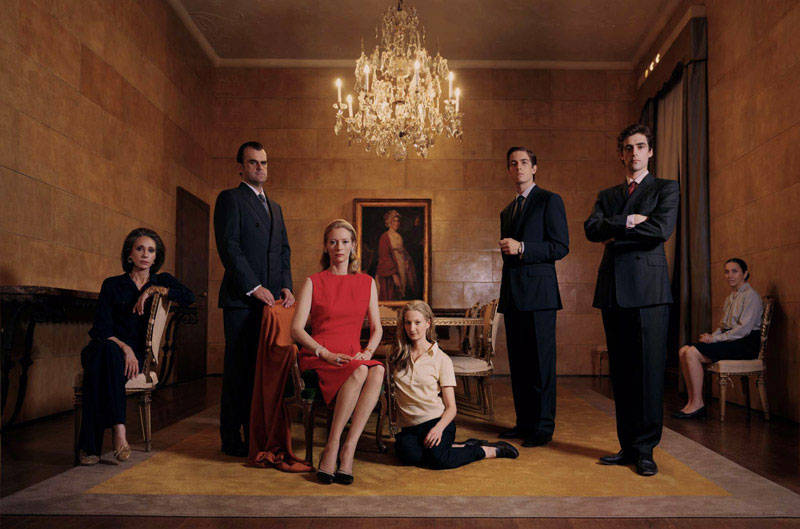I Am Love is essential viewing for those of us who are astonished by Tilda Swinton’s ability to become someone new in every film. On screen, the actress performs a remarkable fission of the self. It’s as if we’re watching her shed the skin of her characters, frame by frame, as she frees herself from the prescribed limitations of their boxed-in dilemmas, emerging from the experience entirely changed. In Michael Clayton (2007) and Julia (2008), both narratives exerted enormous moral stresses upon the women Swinton played. The combination of those societal and internal pressures was the driving force behind her subsequent transformations. And yet, even here, in I Am Love, a film set amongst the privileged lives of the haute bourgeoisie, where all of one’s wishes seem easily attainable, Swinton shows us a conventional woman’s capacity for change, and she does so thrillingly.
I Am Love begins in winter, and captures that season’s hushed sense of enclosure. The camera takes in wide shots of a grainy, snowed-in Milan, and holds steady on various buildings and streets as the setting establishes itself, slowly and deliberately. As the opening credits roll to a close, the last still shot alights upon an enormous, modern house, surrounded on all sides by walls high enough to protect a castle. The camera then continues to hover above the street level, and, like a Peeping Tom on a ladder, peers through the curtains, where it finds a small army of servants busying themselves as they prepare for a celebration.
We enter the house and witness their hurried comings and goings through doorways and hidden passages. Then, briefly, as if afraid to linger or stare at her for too long, we glimpse Emma Recchi (Tilda Swinton), eyes cast downward, her hands in motion, busy with dinner table chores. This introduction via scenic tableau is only separated by a few edited seconds from Emma’s later entrance that evening to her father-in-law’s birthday party. And what an entrance it is: she has abandoned her drab blouse and slacks for a fitted purple dress, descending the staircase like royalty from some inaccessible or mythic kingdom. She appears right-sized in this mansion, and content in her role as housewife and mother of three. But is she?

Swinton doesn’t play ordinary, so the role of Emma Recchi might, at first, seem like a puzzling choice. Did she long for the role of an introvert after playing the volatile, unstrung and vile Julia? Emma must have felt like a salve to Swinton after the verbal pyrotechnics required of her for Erick Zonca’s film. But we’re immediately faced with a problem: from Lady Chatterly’s Lover (1928) to Unfaithful (2002) with Diane Lane, we’ve seen this story before. Above and beyond the travel pornography that cinematic Italy offers, can the overly familiar story of a wealthy wife’s discontent once again hold our interest?


